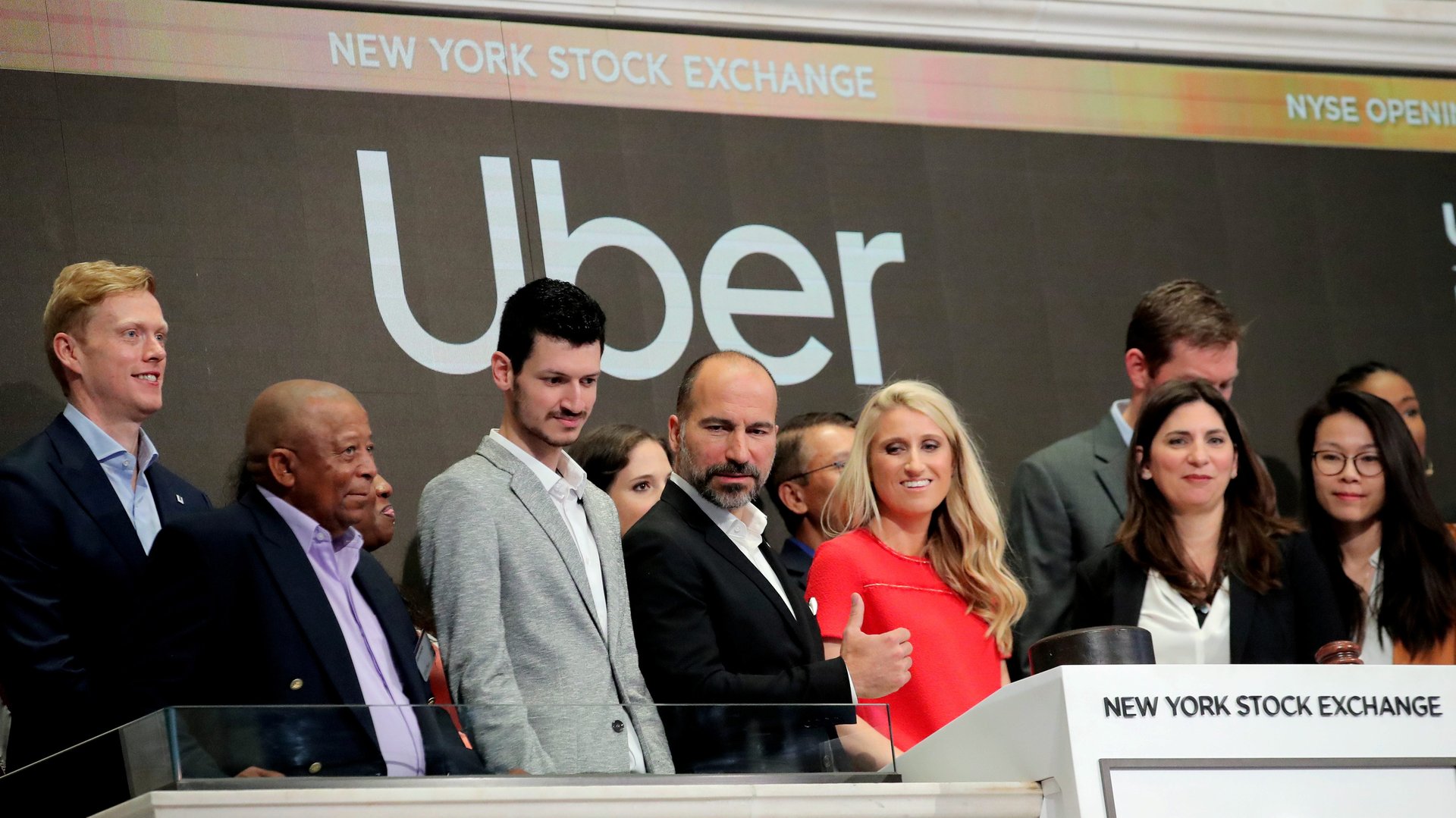Uber picked a bad day to go public
After all the hype, Uber picked a pretty bad day to go public.


After all the hype, Uber picked a pretty bad day to go public.
Yesterday, Uber priced its shares at $45, raising $8.1 billion and valuing the ride-hailing company at about $82 billion. Its first trade, at 11:50am in New York, was $42, about 6% below the IPO price. First-day trading tends to be volatile, and at the time of writing, Uber was trading around $44.50, giving the company a market value closer to $80 billion.
Uber’s IPO price was towards the bottom end of its expected range, as bankers took a conservative stance amid a volatile week in stock markets. The VIX, a volatility index considered the market’s “fear gauge,” jumped to its highest level since January this week as the US-China trade war escalated. Overnight, US president Donald Trump imposed higher tariffs on $200 billion in Chinese goods, and is threatening tariffs on an additional $325 billion worth of goods.
At the time of writing, the S&P 500, the benchmark US index, was down about 0.6%, its fifth consecutive session in the red. This may be weighing on Uber’s shares. Other big tech companies to go public this year all started trading higher on their first day, in friendlier market conditions. For example, Zoom, which licenses video-conferencing software to companies, started trading 80% above its IPO price.
Uber’s ride-sharing rival Lyft ended its first day on the market, March 29, up nearly 9%. The next day, however, it fell more than 4% below its IPO price. Today, Lyft’s share price is down 27% from its IPO price, as investors consider that the company doesn’t have a clear path to profitability and sustainability. That’s not a good sign for Uber, which warned investors before it went public that it may never be profitable.